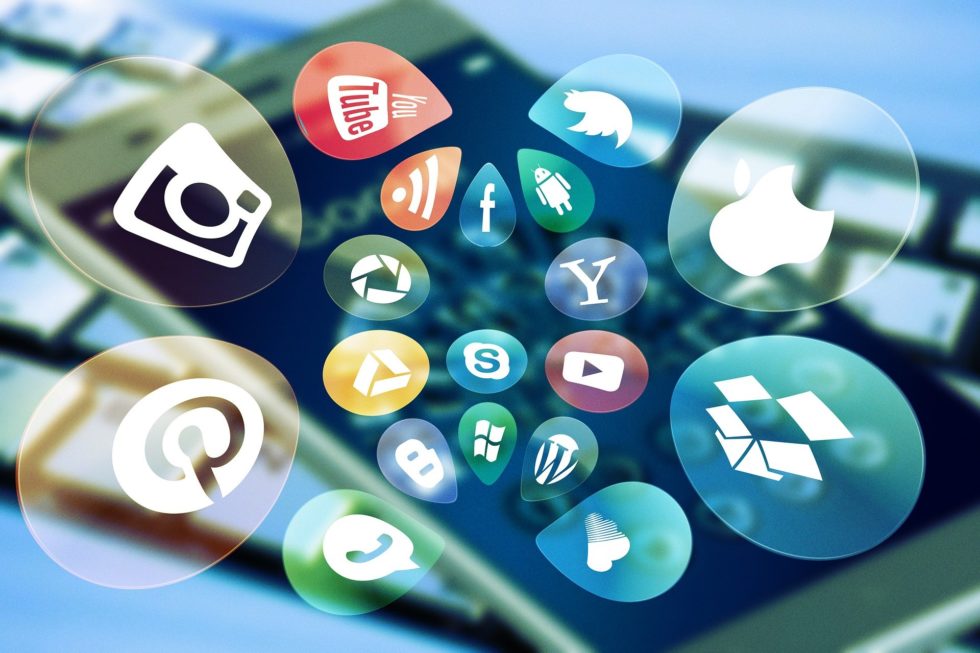The development of the internet back in the 1980s led to astounding changes in the world. Social networking sites like Facebook, Twitter, MySpace and YouTube have brought a whole new meaning to the “world wide web.”
It is possible– and it happens all of the time– for people who live millions of miles apart to meet, fall in love, have a relationship and maybe even break up. It is more easily possible for anyone to stay connected with family and friends across the miles and in the course of busy lives. It is fun to hear what your grade school buddies are up to, even though you never really see them face-to-face.
Social networking can be enjoyable, interesting, enriching…and it can also really bring a person down.
If you struggle with insecurity, jealousy or low self esteem, logging onto your social networking can be like entering a field of veritable land mines.
Though you might not like to admit it, reading about how successful/attractive/ripped/in shape/happy/healthy/wealthy (and more) your friends are can be a real bummer if you believe you are deficient in that area.
If you already feel self-conscious about your weight, concerned about your relationship, worried about your bank account or job status, reading an update like, “He brought me flowers three weeks in a row!” or “I can fit in my high school prom dress again!” or “We’re flying the family to Hawaii” can seem like a knife twisting in an already sore wound.
Another potential self esteem downer provided by social networking sites has to do with the popularity game.
The social aspect to sites like Facebook and Twitter is the interaction with others. On Facebook, people can give a link, photo or status update a “like” or they can comment on it. They can also share it with their friend list. Twitter has a few less bells and whistles, but users are given the ability to have a public (or private) conversation with someone and also to Re-Tweet a post from another.
This is all well and good, except if you have a habit of seeing yourself as awkward, un-liked, un-hip or even boring. If you do post something on your social networking site and nobody comments, “likes” or otherwise interacts with you, it can feel like rejection or some kind of statement about you.
As much as you might remind yourself that this is no big deal and that what others think has no bearing on you, unfortunately, it can seem like a big deal. Your sense of self-worth can plummet even further– mostly from what you’re telling yourself that this means.
Of course, it’s not the fault of the person who is sharing some fabulous news in a status update. It’s also not the fault of the people who didn’t “like” your post or tweet with you. And, it’s not the fault of the social networking sites either.
Actually, it’s not even your fault. Blame and self-criticism are most likely what got you into this place of being jealous or upset by what you’re reading. If you want to stop feeling bad about yourself, begin with you.
Re-focus on you.
Use it, don’t abuse it.
One option is to stop visiting social networking sites completely. Unless your job requires you to be on Facebook or Twitter, it’s not mandatory. If you and your partner are in a long distance relationship and social networking is one way you stay connected, you could narrow down your activities on these sites.
Social networking is supposed to be a fun way to interact with others. It’s there for you to use, not abuse.
If you find that your moods and sense of self worth tend rise and fall in direct relation to the feedback (or lack of feedback) you get while social networking, this is probably a sign that you’re abusing it. The amount of time you spend on Facebook might vary, but the effect– how you feel– is what to pay attention to.
The encouragement here is to NOT use Facebook, Twitter, YouTube (or any other social networking site) as your excuse to feel bad– or good– about yourself. Don’t give away YOUR power to define your own worth and value.
Don’t use social networking to fill yourself up either. Just like any entertainment, it can be a pleasant and informational part of your day…or it can turn into a kind of addiction.
If you think you might be abusing social networking, noticing what you’re doing is an important first step to take. Next, before you log onto your account, pay attention to how you’re feeling. Are you logging on because you “need” some sign that you’re okay or acceptable? Are you trying to avoid a situation that needs your attention?
If you are abusing social networking in these ways, invite yourself to take some time to be with your feelings about yourself or the troubling situation first. You might not find a complete resolution in those moments, but just acknowledging how you feel and what’s true for you right now can help. If you then choose to go on your social network accounts, you are less likely to be triggered and upset by what you read.
Step away when you start taking it personally (or seriously). The same advice applies when you’re in the middle of reading through those status updates, comments on a video or string of Tweets. If you begin to abuse yourself because of what you’re thinking about what you’re reading, take a break.
At the moment that you start taking personally what someone you knew in college comments on one of your status updates, for example, step away from your computer. There’s nothing to be gained by getting defensive and it’s not going to help your self esteem to give the comment more importance than it deserves.
Does this mean that nobody’s opinion other than yours counts?
No.
It can be helpful to learn from the advice and example of others. Sometimes, friends connected with online or face-to-face can be the balm for the soul that helps get any of us through the day. Just remember that YOU get to choose what information and advice are useful and true for you.
The same goes with your self worth. YOU are the one who can most effectively boost yourself up and allow yourself to be the best you can be.






